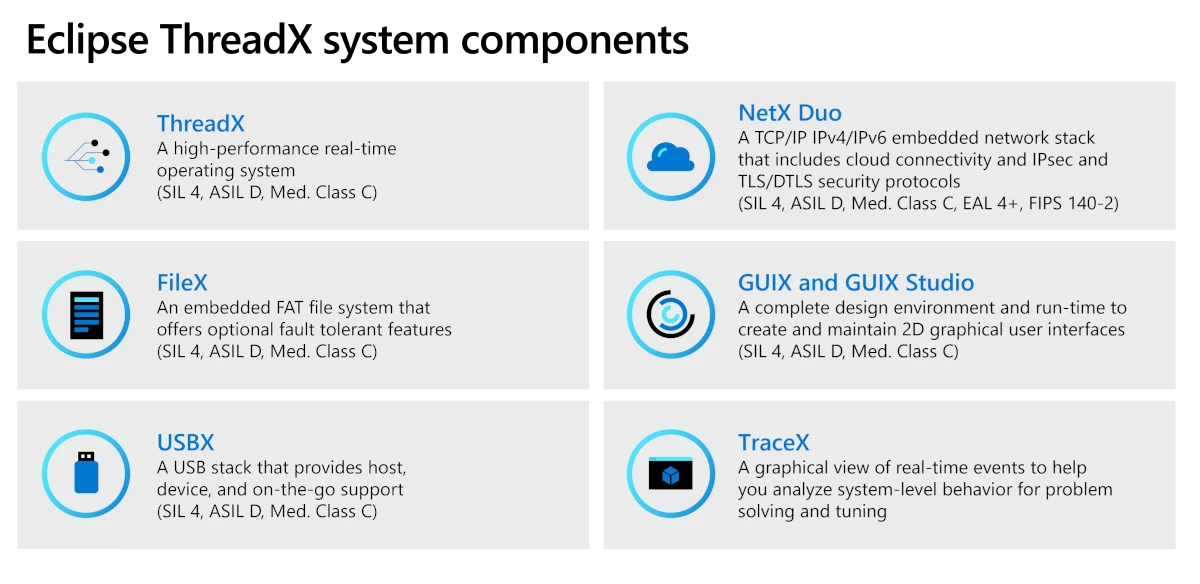Microsoft will soon open-source Eclipse ThreadX real-time operating system that has been deployed on more than 12 billion embedded devices worldwide since its first release in 1997 and, for instance, it is found in Broadcom processors powering Raspberry Pi SBCs. ThreadX was a commercial, safety-certified real-time operating system developed Express Logic which was acquired by Microsoft in 2019 and renamed to Azure RTOS. Last year, Microsoft decided to start the process to fully open-source Azure RTOS under an MIT license and managed by the Eclipse Foundation. Hence its new name: “Eclipse ThreadX“. The Eclipse ThreadX project is not simply comprised of the RTOS itself, but also includes other components: ThreadX – Real-time operating system (RTOS) designed for deeply embedded applications NetX Duo – Industrial-grade TCP/IP network stack designed for deeply embedded real-time and IoT applications FileX – FAT-compatible file system integrated with ThreadX kernel GUIX – Embedded graphical user interface […]
Express Logic Releases ThreadX-Lite RTOS for ARM Cortex-M
Express Logic has unveiled its ThreadX-Lite Real-Time Operating System, a priority-based, preemptive scheduling RTOS for ARM Cortex-M development. It is exclusively be available via IAR Systems and is integrated with the C/C++ compiler and debugger tool suite IAR Embedded Workbench. ThreadX-Lite is “designed to be small, fast, and easy-to-use, while maintaining the functionality and efficiency of a highly optimized RTOS”. ThreadX-Lite targets Cortex-M0, M0+, M3, and M4-based microcontrollers from Atmel, Freescale, Fujitsu, Infineon, NXP, STMicroelectronics, and Texas Instruments. ThreadX-Lite is a subset of ThreadX RTOS, both RTOS share features and capabilities packaged in an object library as well as ThreadX API, but it is not very clear what the differences between the two are from the resources available. Here are the key feature of this RTOS: Small-footprint (small as 2KB, automatic scaling) Fast execution (sub microsecond context switch) Unlimited threads, semaphores, timers, queues, block pools, byte pools, and event flag groups […]




